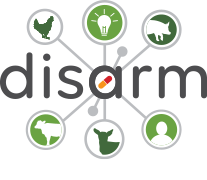Artificial Calf Feeding for Good Health
Good nutrition is key to having healthy calves that grow into healthy adult cattle. Calves are born without rumen function – they rely on milk feeds to provide nutrients and energy while solid feed (concentrates and forage) help them gradually develop into a ruminant.
When feeding young calves:
- Feed at least two milk meals per day until at least 28 days of age. Before calves are 1 month old, their rumen is not sufficiently developed to digest solid feed well enough to constitute a meal.
- Feed calf milk replacer (CMR) or pasteurized saleable whole milk to avoid transfer of infectious disease to calves. Do not feed non-saleable waste milk – milk from cows treated with antibiotics contains antibiotic residues. Feeding this contributes to the development of antibiotic resistance and harms the friendly bacteria in the calf’s gut, causing diarrhoea.
- Feed at least 750g milk solids per day for the first 4 weeks. This will ensure calves have the energy and nutrients to grow, keep warm, and support their immune function. Feed higher quantities if you are aiming for growth rates of 0.7-0.8 kg/day or more.
- Keep milk-feeding consistent: feed a set amount of milk at a set temperature, at a set time. Make any necessary changes gradually.
- Ensure milk feeding equipment is clean. Wash it with hot water and detergent between every feed to avoid cross-contamination and bacterial build-up.
- From a few days of age, offer small amounts of solid feed (concentrates and forage e.g. chopped straw) so that calves can eat small amounts to develop their rumen. Gradually increase this provision of solid feed. Wean calves when they eat 1kg of concentrate per day for 3-4 days, at approximately 6 weeks of age.
- Ensure calves have access to clean, fresh water at all times.
